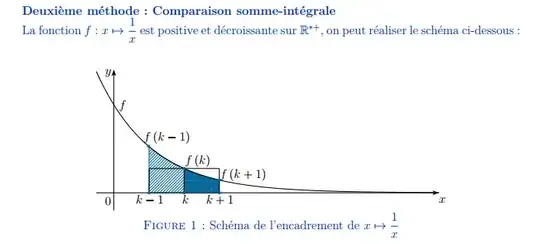Prove that $$\lim _{n\to \infty }\frac{1}{n^{p+1}}\left(\sum _{k=1}^{n \:}k^p\:\right)=\frac{1}{p+1}$$
Mi idea was to separate the terms by saying $$\frac{\left(\sum _{n=1}^{\infty \:}n^p\:\right)}{n^{p+1}} = \left(\left(\frac{1}{n}\right)^p+\left(\frac{2}{n}\right)^p+\left(\frac{3}{n}\right)^p+...+1\right)\left(\frac{1}{n}\right)\text{ and } \lim _{n\to \infty \:}\left(\frac{1}{n}\right)=0$$
but then I got stucked in this part, an I dont know how to get it to $\displaystyle \frac{1}{p+1}$
